Search Results
Showing results 21 to 40 of 64
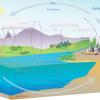
The Carbon Cycle and its Role in Climate Change: Activity 1
Source Institutions
In this activity (on page 1), learners role play as atoms to explore how atoms can be rearranged to make different materials.

Plankton Races
Source Institutions
In this two-part activity, learners investigate buoyancy, density and surface area as well as biodiversity and the relationship between the structure and function of organisms.

Coral Snapshots: Biodiversity in Marine Protected Areas
Source Institutions
In this data activity, learners analyze data from coral reef snapshots taken by scientists at the Virginia Institute of Marine Science.

The Carbon Cycle and its Role in Climate Change: Activity 2
Source Institutions
In this activity (on page 7), learners explore the meaning of a "carbon sink." Using simple props, learners and/or an educator demonstrate how plants act as carbon sinks and how greenhouse gases cause

The Best Dam Simulation Ever
Source Institutions
This online simulation game explores the different consequences of water levels on the Columbia River in the Pacific Northwest.
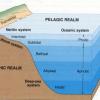
Introduction to Ocean Zones
Source Institutions
In this activity, learners will create a diagram of the ocean zones and determine what organisms live in each zone.

Slimy Cells
Source Institutions
In this activity, learners solidify their conceptualization of cells by building a model of a cell in a ziplock bag.

Sustainable Fishing
Source Institutions
In this activity, learners use a model for how fishing affects marine life populations, and will construct explanations for one of the reasons why fish populations are declining.
Build a Borneo Glider
Source Institutions
In this inquiry-based activity, learners investigate the basic forces of flight as they construct their own paper glider that represents a rainforest creature from Borneo (large, tropical island in So
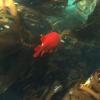
Design a Fish
Source Institutions
In this activity (page 2 of PDF under GPS: Alligator Habitat Activity), learners will study the adaptations different fish species have developed to survive in their habitats.
What Does Life Need to Live?
Source Institutions
In this astrobiology activity (on page 11 of the PDF), learners consider what organisms need in order to live (water, nutrients, and energy).
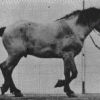
Horse Gaits Flipbooks
Source Institutions
In this activity, learners explore the gait of horses by constructing flipbooks with British photographer Eadweard Muybridge's famous photographs.

The Carbon Cycle: How It Works
Source Institutions
In this game, learners walk through an imaginary Carbon Cycle and explore the ways in which carbon is stored in reservoirs and the processes that transport the carbon atom from one location to another

OBIS Oil Spill
Source Institutions
In this outdoor activity, learners simulate an oil spill using popcorn (both oil and popcorn float on water), and estimate the spill's impact on the environment.
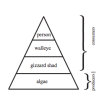
Who Can Harvest a Walleye?
Source Institutions
This activity focuses on interactions within Earth systems and the effects of human activities. In this activity learners build a biomass pyramid.
Any Year Calendars
Source Institutions
This PDF contains 12 calendars (12 months). Each month contains activities about math. Things to do on familiar holidays (like July 4), less common holidays (like Backward Day), and any day.

Building a Magic Carpet
Source Institutions
In this activity (page 89 of the PDF), learners compare and contrast pitch and roll motions by using a Magic Carpet maze similar to one that was used for Neurolab investigations about microgravity.
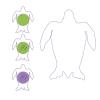
Sea Turtle First Aid Investigation
Source Institutions
This activity (located on page 4 of the PDF under GPS: Sea Turtles Activity) is a full inquiry investigation into testing a repair material.

The Carbon Cycle: Carbon Tracker
Source Institutions
In this activity, learners play NOAA's Carbon Tracker game and discover ways to keep track of carbon dioxide and other greenhouse gases in the world.
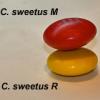
Survival of the Fittest: Variations in the Clam Species Clamys sweetus
Source Institutions
This guided inquiry three-part activity engages learners in thinking about the mechanism of natural selection by encouraging them to formulate questions that can be answered through scientific investi
